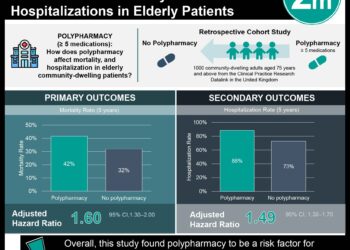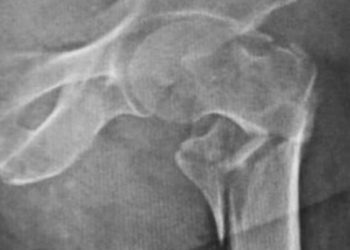Risk of hospitalization for COVID-19 higher among black patients in Atlanta, Georgia
1. Black patients with COVID-19 were more likely to be hospitalized than white patients in Atlanta, Georgia.
2. Older age adults, lack of health insurance, male sex, obesity, smoking, and diebetes mellitus history were also found to be at an independently increased risk of hospitalization.
Evidence Rating Level: 2 (Good)
Study Rundown: To date, over 2 million cases of COVID-19 have been reported in the United States. There is a growing body of literature to suggest that older populations, males, black patients, and individuals with significant underlying medical conditions are at an increased risk of infection and adverse outcomes. Comparatively less is known about the risk for hospitalization among these specific groups. This cross-sectional study compared hospitalized and non-hospitalized adults from the Atlanta, Georgia, area to identify risk factors associated with hospitalization. Among this population, age ≥65 years, black race, having a diagnosis of diabetes mellitus, lack of health insurance, male sex, smoking, and obesity were all independently associated with an increased risk of hospitalization. The association between black individuals and hospitalization persisted after controlling for diagnosed medical conditions, suggesting that underlying structural mechanisms like access to health care and other social determinants of health played a role in this increased risk. An inherent limitation of this report, like many other cross-sectional studies, is selection bias; for example, non-hospitalized individuals might have chosen to not seek care or to seek care elsewhere. Therefore, hospitalization itself may be representative of potential confounding variables that have influenced the data. Nonetheless, this report further characterizes the persistent, yet recently exacerbated, health disparities that exist in the United States and adds to the growing consensus that specific populations are, in addition to adverse outcomes, at an independently increased risk for hospitalization due to COVID-19.
Click here to read the study in MMWR
Relevant reading: COVID-19 and Racial/Ethnic Disparities
In-depth [cross-sectional study]: The study population included 220 hospitalized (median age = 61.0 years, 51.8% male, 79.1% black) and 311 non-hospitalized (median age = 45.0 years, 36.7% male, 44.7% black) in the metropolitan Atlanta, Georgia, area between 1 March and 7 April 2020. Hospitals provided lists of patients from which the study cohort participants were sequentially selected. Participants were all ≥18 years with RT-PCR laboratory-confirmed COVID-19 and treated at six acute care hospitals or their respective outpatient clinics. After controlling for baseline patient characteristics and comorbidities, age ≥65 years (aOR 3.4, 95% CI 1.6 to 7.4), black race (aOR 3.2, 95% CI 1.8 to 5.8), having a diagnosis of diabetes mellitus (aOR 3.1, 95% CI 1.7 to 5.9), lacking health insurance (aOR = 2.8, 95% CI 1.1 to 7.3), male sex (aOR = 2.4, 95% CI 1.4 to 4.1), smoking (aOR 2.3, 95% CI 1.2 to 4.5), and obesity (aOR = 1.9, 95% CI 1.1 to 3.3) were all independently associated with an increased risk of hospitalization. Among this particular cohort, hypertension, which has previously been described as associated with poorer outcomes, was not correlated with an increased risk of hospitalization. Additional research is needed to characterize the public health and health policy implications of these data.
Image: PD
©2020 2 Minute Medicine, Inc. All rights reserved. No works may be reproduced without expressed written consent from 2 Minute Medicine, Inc. Inquire about licensing here. No article should be construed as medical advice and is not intended as such by the authors or by 2 Minute Medicine, Inc.







